Israel says Paris talks on hostage deal were ‘constructive,’ will continue this week
‘Significant gaps’ remain, says Prime Minister’s Office, after US, Israeli, Qatari and Egyptian officials meet to weigh pause in fighting in exchange for release of hostages.
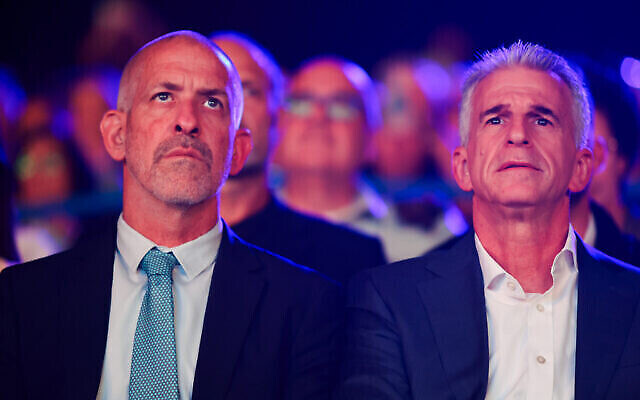
(THE TIMES OF ISRAEL) The Prime Minister’s Office on Sunday confirmed that a four-way meeting between the US, Israel, Qatar and Egypt took place “in Europe” to discuss a potential deal to free all Israeli hostages held by Hamas in exchange for a two-month ceasefire.
The PMO called the discussions, which have been widely reported to be held in Paris, “constructive.”
“There are still significant gaps that the sides will discuss this week in additional meetings,” Prime Minister Benjamin Netanyahu’s office added in a statement.
CIA Director Bill Burns discussed the contours of the emerging agreement in France with David Barnea, the head of the Mossad intelligence agency, Qatari Prime Minister Mohammed bin Abdulrahman Al Thani and Egyptian intelligence chief Abbas Kamel.
Israel also sent Ronen Bar, the head of the Shin Ben security service, as well as IDF hostage envoy Nitzan Alon to the summit.
Two senior US officials told The Associated Press on Saturday that American negotiators are making progress on the agreement. The officials, who requested anonymity to discuss the sensitive negotiations, told the AP that emerging terms of the yet-to-be-sealed deal would play out over two phases.
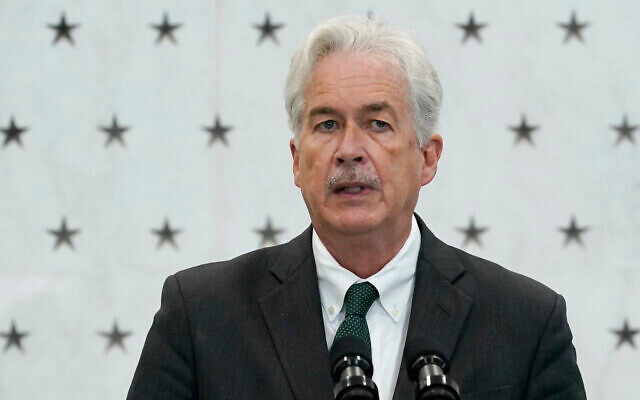
In the first phase, fighting would stop to allow for the remaining women, elderly and wounded hostages to be released by Hamas.
Israel and Hamas would then aim to work out details during the first 30 days of the pause for a second phase in which Israeli soldiers and civilian men would be released.
The emerging deal also calls for Israel to allow more humanitarian aid into Gaza.
While the proposed deal would not end the war, US officials are hopeful that such an agreement could lay the groundwork for a durable resolution to the conflict.
The New York Times reported on Saturday that progress had been made toward an agreement for a pause in fighting in exchange for the remaining hostages.
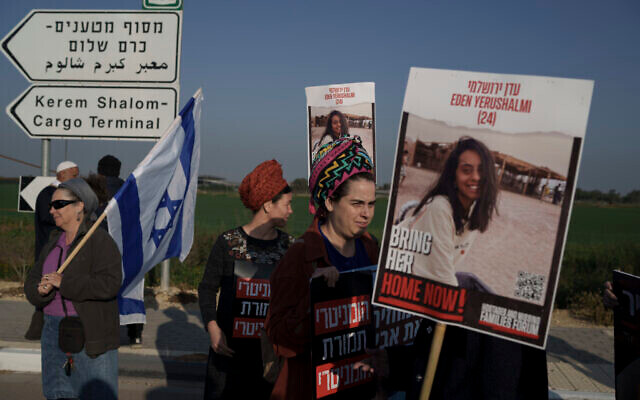
Israeli officials, cited by Channel 12, have played down expectations, saying that Hamas is stubbornly clinging to demands that Israel completely end the war while leaving the terror group in power over Gaza.
The war erupted on October 7 when Hamas-led terrorists from the Gaza Strip carried out a massive attack on attack on Israel that killed some 1,200 people in the south of the country, most of them civilians. Marauding terrorists massacred people, gang-raped women and tortured and mutilated their victims in border communities and at an outdoor music festival. Hamas and other terrorists also abducted 253 people of all ages, mostly civilians, as hostages in Gaza.
Israel responded with a military campaign, including a ground offensive, to destroy Hamas, remove it from power in Gaza and release the hostages. Netanyahu has repeatedly vowed to continue the offensive until complete victory over Hamas is achieved.
“We hope we will manage to reach a breakthrough, one that will jumpstart real negotiations with a will to reach an agreement,” an unnamed Israeli source told Channel 12 news on Saturday. “Currently, the conditions do not enable that because there is no agreement on the general framework. That is the purpose of the summit. To break the stalemate and find creative formulas.”
Hamas is insisting not only that Israel completely stop fighting, but also that it pulls its forces out of Gaza, along with international guarantees that the terror group can remain in power in the coastal enclave, sources said, whereas Israel sees ending its offensive as a “red line.” Sources said Egypt and Qatar need to be “more creative” in resolving the issues rather than just acting as a conduit to pass information between the various parties.
Though Egypt has diplomatic relations with Israel, Qatar does not.
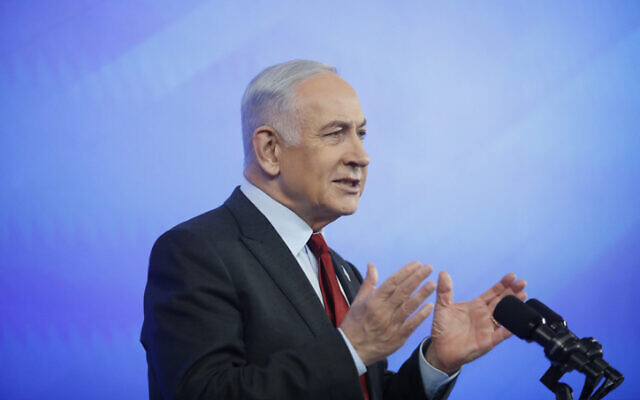
Netanyahu criticized the Gulf emirate during a televised press conferenceon Saturday night.
“Qatar hosts the heads of Hamas, it also funds Hamas and it has leverage over Hamas,” he said. “It promised to ensure that the medicines would reach… our hostages. And it said it could help to return [the hostages]. So it should place its pressure on [Hamas]. It placed itself as a mediator. Please, prove it and return our hostages. And in the meantime, transfer the medicines to them.”
On Wednesday, the Qatari foreign ministry said it was “appalled” by earlier remarks by Netanyahu, leaked to Israeli TV, in which he described himself as refraining from thanking Qatar for its mediation and deemed the gas-rich emirate “problematic.”
Netanyahu has faced increasing pressure from the families of many hostages, who are demanding a deal to win their loved one’s release. Weekly rallies in Tel Aviv have called for a deal, including one held on Saturday night.
Around 100 hostages were freed under a weeklong ceasefire deal in November in exchange for the release of Palestinian security prisoners held by Israel. That deal was mediated by Egypt and Qatar. More than 130 remain captive, but a number have been confirmed dead.
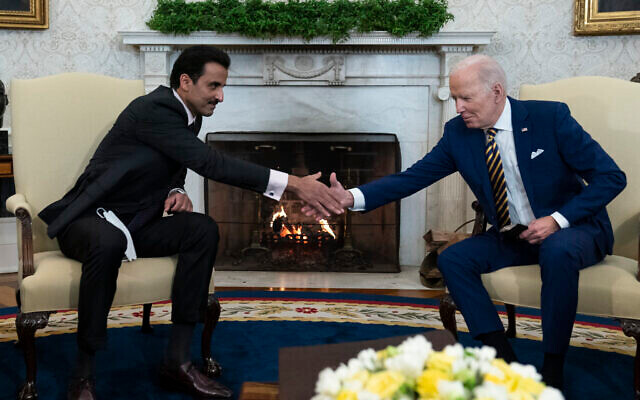
“Both leaders affirmed that a hostage deal is central to establishing a prolonged humanitarian pause in the fighting and ensure additional life-saving humanitarian assistance reaches civilians in need throughout Gaza,” the White House said in a readout of Biden’s call with the Qatari leader. “They underscored the urgency of the situation, and welcomed the close cooperation among their teams to advance recent discussions.”
Burns was in France for the high-level negotiations after White House senior adviser Brett McGurk traveled to the Mideast last week for talks on the hostage situation.
If Burns sees progress in his talks in France, Biden may dispatch McGurk back to the Mideast quickly to try to complete an agreement.
It is believed that 132 hostages abducted by Hamas on October 7 remain in Gaza — not all of them alive. The IDF has confirmed the deaths of 28 of those still held by Hamas, citing intelligence and findings obtained by troops operating in Gaza.
Four hostages were released prior to the November deal, and one was rescued by troops. The bodies of 11 hostages have also been recovered, including three who were mistakenly killed by the military.
Hamas has also been holding the bodies of fallen IDF soldiers Oron Shaul and Hadar Goldin since 2014, as well as two Israeli civilians, Avera Mengistu and Hisham al-Sayed, who are both thought to be alive after entering the Strip of their own accord in 2014 and 2015 respectively.
Agencies contributed to this report.

comments